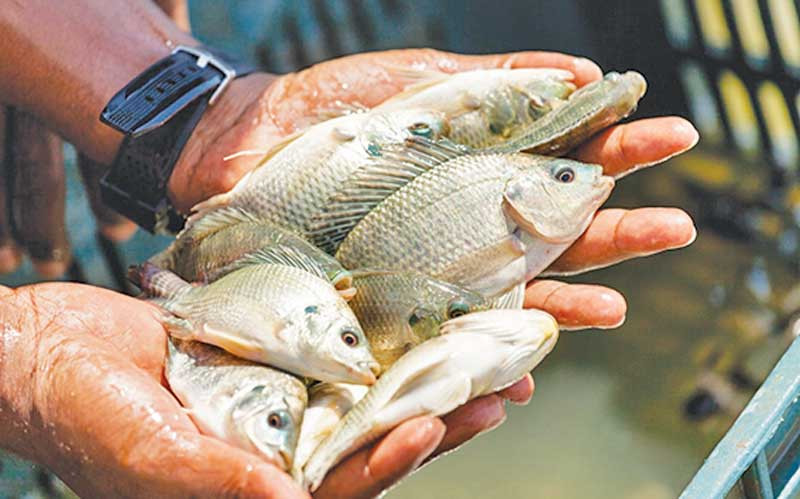
ACROSS the sun-baked plains of Zimbabwe's arid regions, a quiet revolution is underway.
In villages where water scarcity has long been a harsh reality, families are finding hope and prosperity in an unexpected source: Fish farming.
In Chiredzi’s Bandama village, innovation thrives in simplicity, with small, carefully managed pools nurturing a protein-rich harvest that is transforming lives.
This is not the typical image of aquaculture — no sprawling ponds or industrial set-ups.
At the heart of this change lies fish known as the Nile tilapia. Thriving in warm water with minimal space requirements, Tilapia is perfectly suited to the region's limited resources.
Farmers, often women, are equipped with training and support, learning techniques for constructing low-cost ponds, managing water efficiently and ensuring optimal fish health.
The impact is undeniable.
Families that once struggled to put food on the table are now enjoying a reliable source of protein, boosting their nutrition and overall health.
- Lake Harvest hit by low production levels
- 29% surge in fishponds
- Feature: Fish farming gives life to Zim’s arid lands
- Lake Harvest finds suitor after financial turbulence
Keep Reading
"My children used to get sick often because they were not getting enough protein," said Esther Mokoena, a grandmother and fish farmer. "Now, with the fish, they are healthy and strong. They even say they like going to school more because they have the energy to learn."
Children, particularly vulnerable to malnutrition, are reaping the benefits of this readily available protein source.
Surplus fish is sold at local markets, generating income that empowers families to send their children to school, invest in healthcare and improve their living standards.
"Before fish farming, I barely had enough to feed my family, let alone send my children to school," another fish farmer Clever Dumela said.
"Now, thanks to the fish, I can afford all that and more. It has truly changed our lives."
According to environmentalist Martin Urayai, the creation of fishponds attracts wildlife, increasing biodiversity and improving soil fertility.
“Water used in the ponds eventually seeps into the ground, recharging vital aquifers and mitigating the effects of drought. Additionally, the trade in fish creates local jobs, stimulating the economy and fostering self-sufficiency,” he said.
The fish farming revolution has also spread to Mwenezi district which also falls in the arid region 5.
“Selling fish at the market has brought much-needed income to our village,” leader of a women's fish farming co-operative in Chipinge, Maima Sarah said. “Now, we can invest in our businesses, improve our homes, and contribute to the local economy.”
The demand for fish is high and it keeps growing, creating jobs for people in the community, from those who build the ponds to those who transport and sell the fish, said Enock Gora, a co-operative member.
The success story, however, has its challenges. Access to quality fingerlings, affordable fish feed and reliable markets can be hurdles, particularly in remote areas.
“The ongoing threat of climate change and unpredictable weather patterns also demand innovative solutions for water management and pond resilience,” Urayai said.
Most of the farmers said they were recipients of the Zimbabwe Resilience Building Fund which is a long-term development initiative with an overall objective to cushion society from the recurrent shocks and stress caused by natural disasters and other unforeseen occurrences.
The fund is supported by the Lands, Agriculture, Fisheries, Water and Rural Resettlement ministry, the European Union, the Swedish embassy, UNDP and the Foreign, Commonwealth Development Office.
The programme is being implemented by Care International, Plan International and ICRISAT in Chiredzi and Mwenezi and is funded to the tune of US$9,7 million in those two districts alone.










